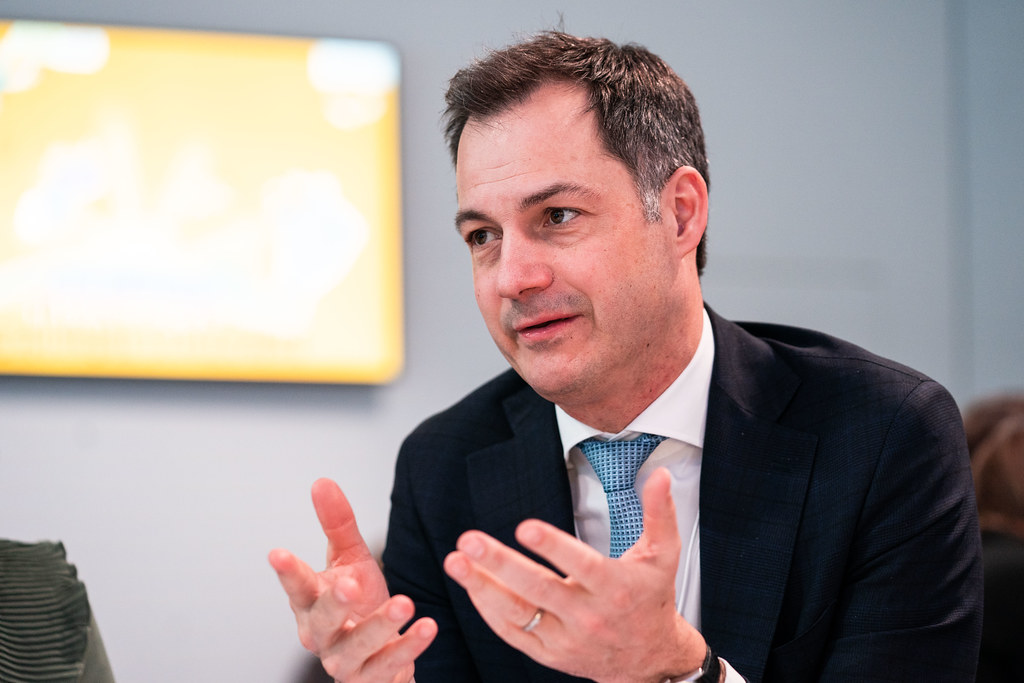BRUSSELS (Parliament Politics Magazine) – The Prime Minister of Belgium, Alexander De Croo has warned that EU sanctions should damage Russia more than the citizens of Europe.
In an interview with Euronews at the World Economic Forum in Davos, De Croo said their foreign policy would only continue if their middle class was still able to defend it.
Having their population’s buy-in was critical because he worried they would be in for a lengthy period of instability, and they needed to make sure people didn’t suffer unduly, he added.
His remarks come amid delayed negotiations over a proposal to impose a blanket embargo on all Russian oil imports across the EU. The embargo, which is the centrepiece of the EU’s sixth round of sanctions, is widely seen as the bloc’s most drastic and far-reaching response to Russia’s invasion of Ukraine.
Hungary, a landlocked country that significantly relies on Russian-operated oil pipelines, has surfaced as the most outspoken opponent, refusing to ratify the ban thus far. Slovakia, the Czech Republic, and Bulgaria have also expressed their displeasure. Sanctions against the EU must be approved by all 27 member states.
De Croo expressed support for the embargo but said that, given the measure’s economic importance, valid concerns from all countries must be considered.
Today, everyone was looking at Hungary, but the entire oil prohibition was causing problems in other countries as well. Some countries were landlocked, and getting petrol for their cars would be tough, De Croo warned.
If they imposed sanctions, the primary concept had always been that it must affect the other side, with as little influence on their side as feasible, he continued.
Their middle class was struggling, and life was difficult these days. The cost of energy was increasing. So, if there were issues about supply security or pricing, they must address them, he said.
In the ensuing days, De Croo was sure that the idea would “get through the line.”
Although a two-day EU summit is slated for early next week, Hungary’s Prime Minister Viktor Orbán has formally requested that the energy embargo be removed from the agenda. Diplomats had hoped that the conference would be the catalyst for a long-awaited breakthrough.
He would rather make an oil ban decision, De Croo said, but he would also like to know how they were going to deal with the ramifications of such a choice.
‘You must intervene if the free market is not operating’
The Belgian Prime Minister, speaking on the continent’s power crisis, which has been wreaking havoc since early autumn and has been aggravated by the war, said market intervention was needed to alter electricity prices, which, in his opinion, did not reflect reality.
They need to take steps to address the underlying causes of the problem, he stated. Subsidies weren’t going to address the problem, he said.
The electricity market in the EU today is based on marginal pricing, commonly known as “pay-as-clear.” All electricity producers, from fossil fuels to wind and solar, bid into the market and offer energy based on their costs of production. The bidding begins with renewables, the cheapest resource and finishes with usually natural gas, the most expensive one.
Because most EU countries still depend on fossil fuels to supply all of their energy needs, the final electricity price is frequently determined by coal or natural gas prices. Even if clean, cheaper sources contribute to the total energy supply, if gas becomes more expensive, electricity rates would inevitably rise.
France, Belgium, Spain, Italy and Portugal have all expressed concern about the contagion effect and have called for reforms to decouple gas and electricity pricing. Other countries are hesitant to make such a significant change, claiming that existing policies promote openness and green investments.
He was a firm believer in free markets. He identified as a liberal. However, if the free market was not functioning or achieving its goal, they must act, De Croo said.
More countries were seeing that they were all destroying their public finances while attempting to support their middle classes. However, because prices had risen to such a high level, the impact that they could have was restricted, he added.






